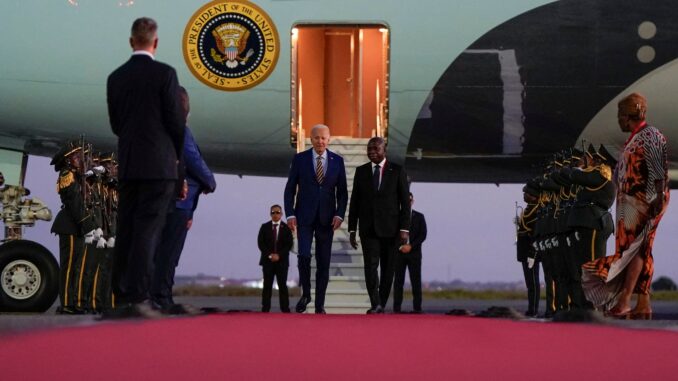
U.S. President Joe Biden announced over $1 billion (€949 million) in humanitarian aid to address the critical needs of Africans displaced by severe droughts and famine. Speaking in Luanda, Angola, Biden underscored the U.S.’ commitment to combating food insecurity and supporting vulnerable populations across 31 African nations.
The United States Agency for International Development (USAID) outlined the allocation of this aid, with approximately $823 million directed through USAID and an additional $186 million through the State Department. This funding aims to support refugees and internally displaced persons in a region USAID identified as having “the highest percentage of hunger-stricken populations globally.”
Africa’s ongoing food crisis is driven by a combination of armed conflicts, extreme weather events, and natural disasters. USAID emphasized that this aid reinforces the U.S.’ “steadfast commitment” to partnering with African countries to address these challenges. The agency also appealed to other international donors to contribute, highlighting that the U.S. has already provided nearly $6.6 billion in humanitarian assistance to sub-Saharan Africa in 2024. Despite this significant contribution, USAID stressed that additional resources are urgently required to meet the escalating demand.
Biden’s visit to Angola, the first by a sitting U.S. president, highlights the growing importance of U.S.-Africa relations. During his stay, Biden met with Angolan President João Lourenço and visited the Slavery Museum, where he delivered a speech reflecting on history and the shared challenges of the present.
Today, Wednesday, December 4, Biden is scheduled to travel to Lobito to participate in an international summit focused on the Lobito Corridor—a strategic infrastructure project connecting the Angolan port city to the Democratic Republic of the Congo and Zambia. Backed by significant investments from the U.S. and the European Union, the corridor aims to enhance regional trade and economic integration. The project also forms part of Washington’s broader efforts to counter China’s expanding influence across Africa.
Biden’s visit comes just weeks before the inauguration of his successor, Donald Trump, on January 20, marking a transitional moment in U.S. foreign policy.
